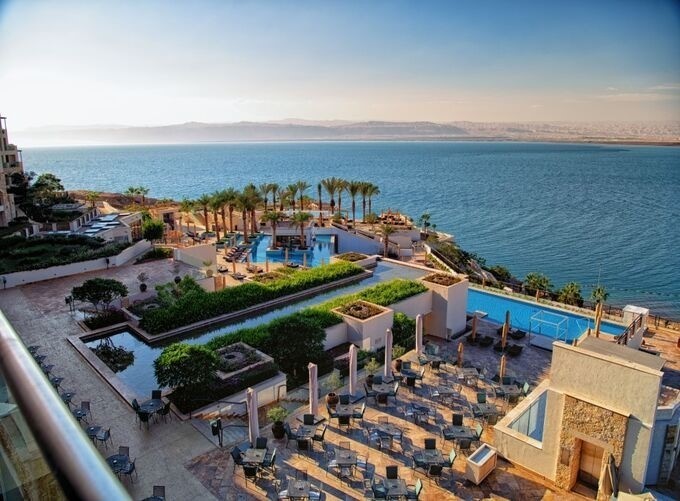
What do you need to know when traveling to Jordan:
Jordan, a country steeped in history and blessed with stunning landscapes, offers travelers an unforgettable experience. From the ancient ruins of Petra to the serene beauty of Wadi Rum, Jordan is a destination that combines rich cultural heritage with breathtaking natural wonders. To help you make the most of your trip, here’s a comprehensive guide covering everything you need to know when traveling to Jordan.
Visas and Entry Requirements
Before you embark on your journey to Jordan, it's crucial to understand the visa requirements. Most travelers will need a visa to enter Jordan, which can typically be obtained upon arrival at major entry points such as Queen Alia International Airport in Amman. Here’s a quick overview:
Tourist Visa: Most visitors can obtain a tourist visa valid for 30 days upon arrival. Ensure your passport is valid for at least six months beyond your planned stay.
Visa Fees: The cost of a visa is approximately 40 Jordanian Dinars (JOD). Be prepared to pay in cash, as not all locations accept credit cards for visa fees.
Jordan Pass: If you plan to visit multiple tourist sites, consider purchasing the Jordan Pass. This pass covers entry fees to various attractions and offers a free visa for stays of three or more nights.
Currency and Payment in Jordan
Jordan’s currency is the Jordanian Dinar (JOD), which is divided into 100 piastres. Here’s what you need to know about handling money in Jordan:
Currency Exchange: You can exchange foreign currency at banks, exchange offices, or major hotels. ATMs are widely available in cities and tourist areas.
Credit Cards: Credit cards are widely accepted in hotels, restaurants, and major shops. However, it’s a good idea to carry some cash, especially when traveling to remote areas.
Tipping: Tipping is customary in Jordan. In restaurants, a tip of 10% is appreciated. For taxis and other services, rounding up the fare or offering a small tip is common practice.
Language
The official language of Jordan is Arabic. However, English is widely spoken, especially in tourist areas, hotels, and restaurants. Basic phrases in Arabic can be helpful and appreciated by locals:
- Hello: Marhaba (مرحبا)
- Thank you: Shukran (شكرا)
- Yes: Na’am (نعم)
- No: La (لا)
Culture and Etiquette in Jordan
Jordanian culture is deeply rooted in traditions and customs. To ensure respectful interactions, keep the following cultural norms in mind:
Dress Code: Jordan is a relatively conservative country. Dress modestly, especially when visiting religious sites. For women, covering shoulders and knees is advisable.
Greetings: A handshake is common, but be aware that physical contact between men and women who are not related is generally avoided.
Photography: Always ask for permission before taking photographs of people, especially in rural areas. Avoid photographing military installations and government buildings.
Safety and Health in Jordan
Jordan is considered one of the safer countries in the Middle East for tourists. However, it’s always wise to stay informed and take precautions:
Health Precautions: Tap water is generally safe to drink in major cities, but bottled water is recommended in rural areas. Be cautious with street food and ensure it’s from a reputable source.
Emergency Services: The emergency number in Jordan is 911. Familiarize yourself with the location of your country’s embassy or consulate.
Transportation in Jordan
Getting around Jordan is relatively straightforward, with various options available:
Taxis: Taxis are readily available in cities and can be hailed on the street or booked via phone. Ensure the taxi uses a meter or agree on a fare before starting the journey.
Car Rentals: Renting a car gives you the flexibility to explore at your own pace. Driving is on the right side of the road, and an international driving permit is recommended.
Public Transport: Jordan has a network of buses and minibuses, but schedules can be irregular. For long-distance travel, consider using intercity buses or trains.

Top Attractions in Jordan
Jordan is home to numerous remarkable attractions. Here are some must-visit sites:
Petra: The ancient city of Petra, a UNESCO World Heritage Site, is renowned for its rock-cut architecture and stunning façades. The iconic Treasury and Monastery are highlights.
Wadi Rum: Known as the Valley of the Moon, Wadi Rum offers breathtaking desert landscapes. Enjoy jeep tours, camel rides, or stay in a Bedouin-style camp under the stars.
Dead Sea: Experience the unique sensation of floating in the mineral-rich waters of the Dead Sea, and indulge in mud treatments known for their therapeutic properties.
Jerash: The ancient city of Jerash boasts some of the best-preserved Roman ruins in the world. Explore the impressive theaters, temples, and colonnaded streets.
Cuisine and Dining
Jordanian cuisine is diverse and flavorful, featuring a mix of Mediterranean and Middle Eastern influences. Some dishes to try include:
Mansaf: The national dish of Jordan, consisting of lamb cooked in a yogurt sauce and served with rice and almonds.
Falafel: Deep-fried chickpea patties often served in pita bread with salad and tahini sauce.
Hummus: A creamy dip made from blended chickpeas, tahini, lemon juice, and garlic.
Baklava: A sweet pastry made from layers of filo dough, nuts, and honey.
Shopping and Souvenirs
Jordan offers a variety of markets and shops where you can find unique souvenirs:
Souks: Traditional markets in cities like Amman and Petra are great for purchasing local handicrafts, spices, and textiles.
Pottery and Handicrafts: Look for hand-painted pottery, mosaic tiles, and traditional Bedouin crafts.
Jewelry: Jordan is known for its beautiful jewelry, particularly pieces incorporating local stones like turquoise and amber.
Climate and Best Time to Visit
Jordan’s climate varies depending on the region and time of year:
Spring (March to May): Ideal for sightseeing with pleasant temperatures and blooming landscapes.
Summer (June to August): Hot temperatures, particularly in the desert areas. This is a good time for beach activities at the Dead Sea.
Autumn (September to November): Another excellent time for travel with comfortable weather and fewer crowds.
Winter (December to February): Cooler temperatures, especially in northern regions. Snowfall can occur in higher altitudes like Petra and Jerash.
Useful Travel Tips
Connectivity: Purchase a local SIM card for internet access and communication. Wi-Fi is available in most hotels and cafes.
Cultural Sensitivity: Respect local customs and traditions, especially when visiting religious sites.
Hydration: Stay hydrated, particularly in desert areas. Carry a reusable water bottle to reduce plastic waste.
Local Customs: Familiarize yourself with local customs and etiquette to enhance your experience and interactions.
Jordan Travel: Ancient Marvels and Scenic Delights
Traveling to Jordan promises a rich and diverse experience, blending ancient history, natural wonders, and vibrant culture. By understanding the essential aspects of travel, from entry requirements to cultural norms and top attractions, you’ll be well-prepared to embark on an unforgettable journey through this captivating country. Whether exploring the majestic ruins of Petra, drifting across the desert in Wadi Rum, or floating in the Dead Sea, Jordan awaits with its timeless allure and warm hospitality.



